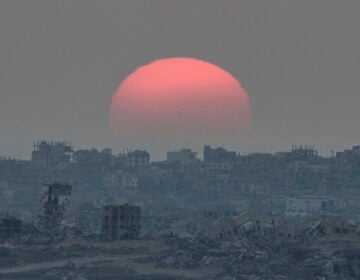Inside the crisis in Syria
Listen
Hour 1
Since the uprising against Syrian president Bashar al-Assad’s rule began 15 months ago, over 10,000 civilians have been killed. The most recent massacre in Houla claimed at least 108 Syrians, many of them women and children who were shot at close range. While it is not clear who is responsible for the mass killings, Assad has denied any responsibility, has blamed his opponents and has defended his governments crackdown on protesters. Last week U.N. Human Rights Council voted to condemn the Syrian government for the Houla massacre and ordered an international probe, but Syrian allies Russia and China and Cuba were strongly opposed. Meanwhile, a sectarian war threatens with civilian Sunnis against the ruling Alawite minority, and their Shia and Christian allies and a refugee crisis is emerging with thousands fleeing to Jordan and Lebanon. In this hour of Radio Times we turn to Syria specialist ANDREW TABLER to help explain the complicated situation in Syria and the implications for the Middle East. Tabler, a journalist and researcher, is a fellow at the Washington Institute for Near East Policy and author of In the Lion’s Den: Inside America’s Cold War with Assad’s Syria.
Listen:
[audio: 060612_100630.mp3]
WHYY is your source for fact-based, in-depth journalism and information. As a nonprofit organization, we rely on financial support from readers like you. Please give today.





